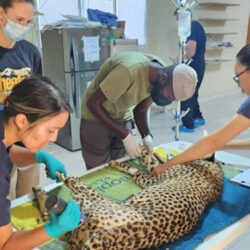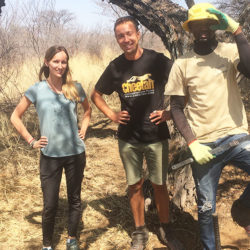Life in Somaliland for a CCF Volunteer
-
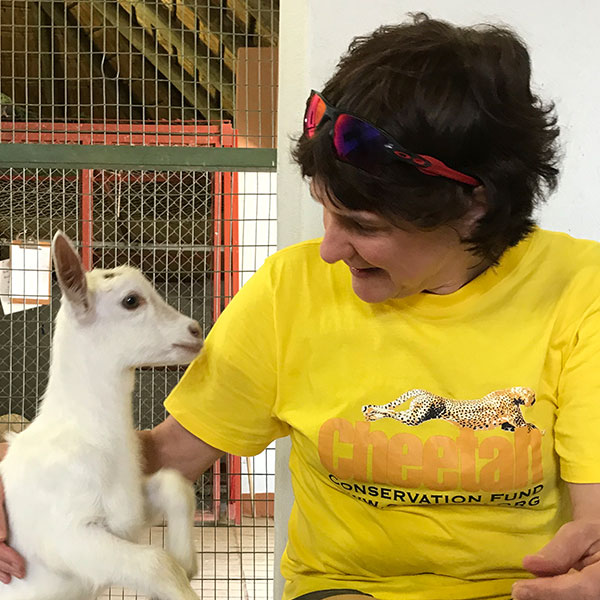
- by Alison Wheeler February 2, 2022
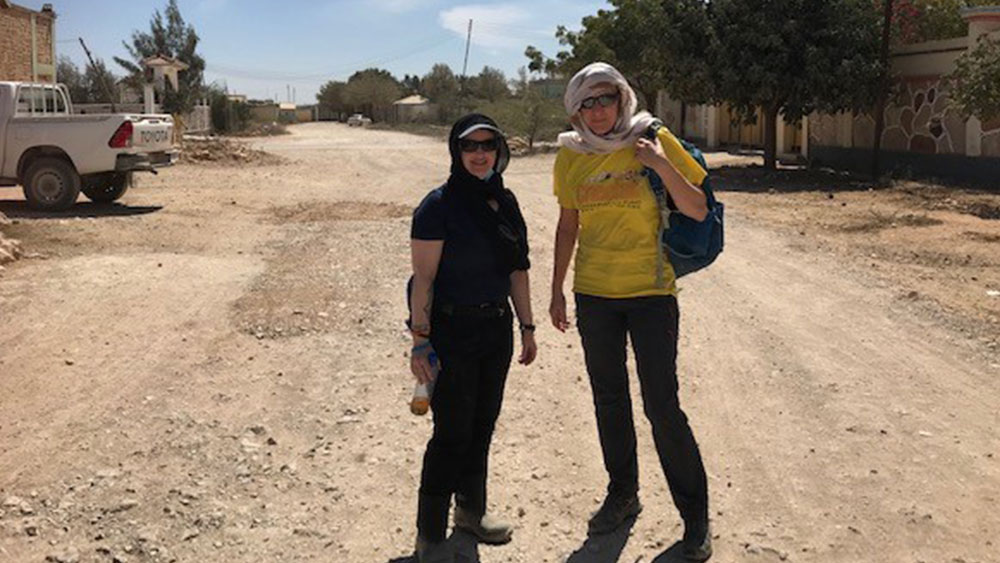
Since visiting CCF in Namibia and learning about the holistic approach to keeping cheetahs in the wild in that country, I have wanted to visit CCF’s Somaliland operation. It’s very different and more dedicated to looking after cheetah cubs that have been confiscated from traffickers. I love cheetahs and wanted another chance to help them. It’s such a good use for the accumulated annual leave built up during COVID-19.
I finally made it – through the never-ending COVID rule changes and the effects on travel from the war in Ethiopia. I arrived safely at Hargeisa International Airport and thankfully I had all my checked luggage. After a short drive, I met CCF’s General Manager, Mark Natt, who welcomed me and showed me around the three safe houses. Safe House 1 is where the young cubs live and Safe House 2 and 3 is where the older cheetahs are housed (plus one leopard – also confiscated from the illegal wildlife trade).
These animals are all so beautiful, it was so sad to see them in captivity but they are much better off now that they have been taken out of the trade. Over 70 cheetahs are here, all confiscated by Somaliland’s Ministry. Many of them were captured due to human-wildlife conflict (their mothers were thought to be a threat to livestock) and were on their way to being sold to wildlife traffickers. They are now being rehabilitated from the ill effects of the inhumane conditions they faced in the hands before confiscation. They are now awaiting the completion of CCF’s Cheetah Rescue and Conservation Centre, where they will be eventually transferred. The new facility is currently being built in Geed Deeble, about an hour’s drive North of Hargeisa.
My first few days were amazing, spent in Safe House 1 with the young cubs. I have been taught to prepare their diets, (camel and goat with extra vitamins added) feed them safely and clean their enclosures. One of the cubs, Sanu, is in quarantine as she only recently arrived. She has gradually been getting used to humans and becoming less afraid of us. Sometimes my role was just to sit close and talk to her so she started to understand that we wouldn’t hurt her. She watched the other cheetahs from her cage with huge interest and looked like she wanted to join them – but no introductions are permitted until the end of her 14-day quarantine!

The buildings leased by CCF as safe houses and for the cheetahs and staff accommodation are all really close together, just a few minutes walk along wide dusty roads around big squares of land, some with impressive buildings, some empty but with walls around. The neighbourhood has a lot of embassies and NGO buildings and feels quite safe.
There are many local support staff who are all friendly and interested in the work. It is a little strange to be here, Somaliland is a predominantly Muslim country, so hair covering for women and discrete dress in public is required. We are also advised not to walk alone at night, but the CCF guys are good at walking us around.
Outside our buildings are stationed SPU (local police) as security. It is a requirement of the government that we employ them, but I have not felt particularly unsafe since I have been here. It is also a requirement that we have a SUP person with us when we leave Hargeisa and travel in the countryside.
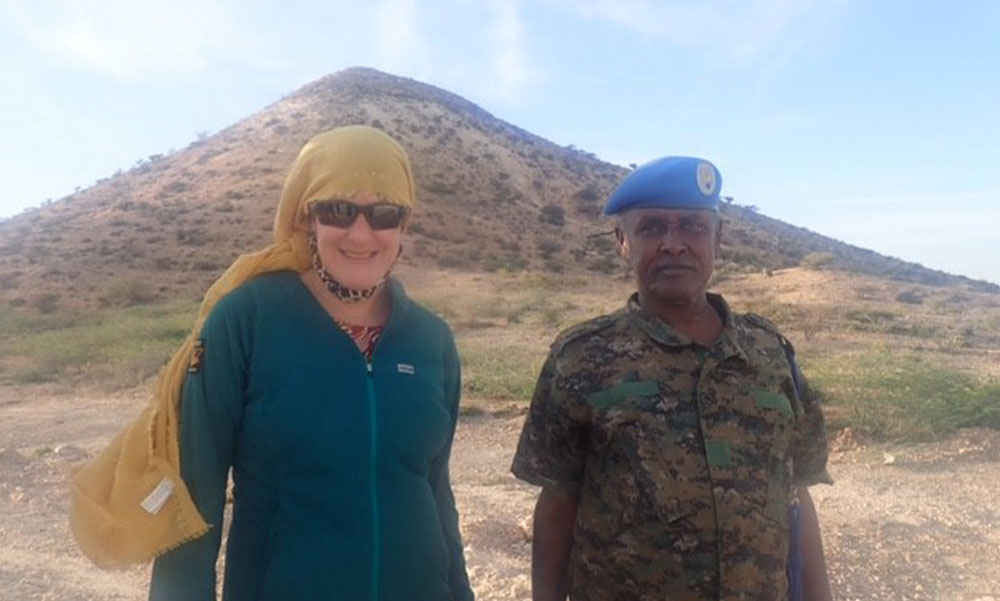
Also, outside our facilities, there are a pack of local dogs. These are some of the dogs that Dr. Carter sterilized in rabies, spay and neuter clinic during his tenure. Dogs are not commonly considered pets in Somaliland but many street dogs follow us all around. Maybe they are hoping for some leftover meat from the cheetahs.
Recently, there was a piece in the paper about the government of the UK proposing to formally recognise Somaliland as a country (currently is not a recognised country but considered as part of Somalia). The Somali staff were excited about this and were telling us before we had heard.
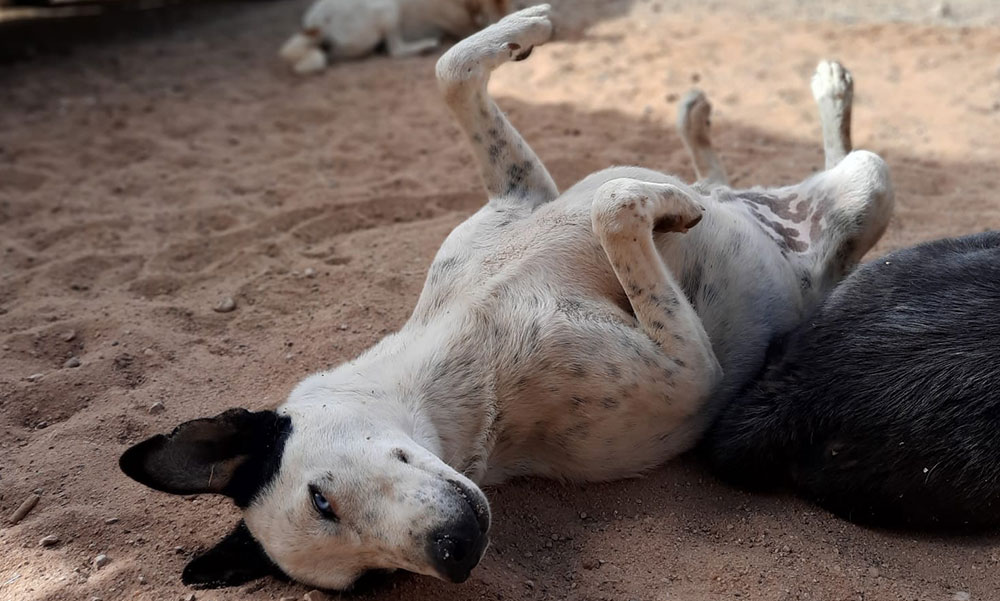
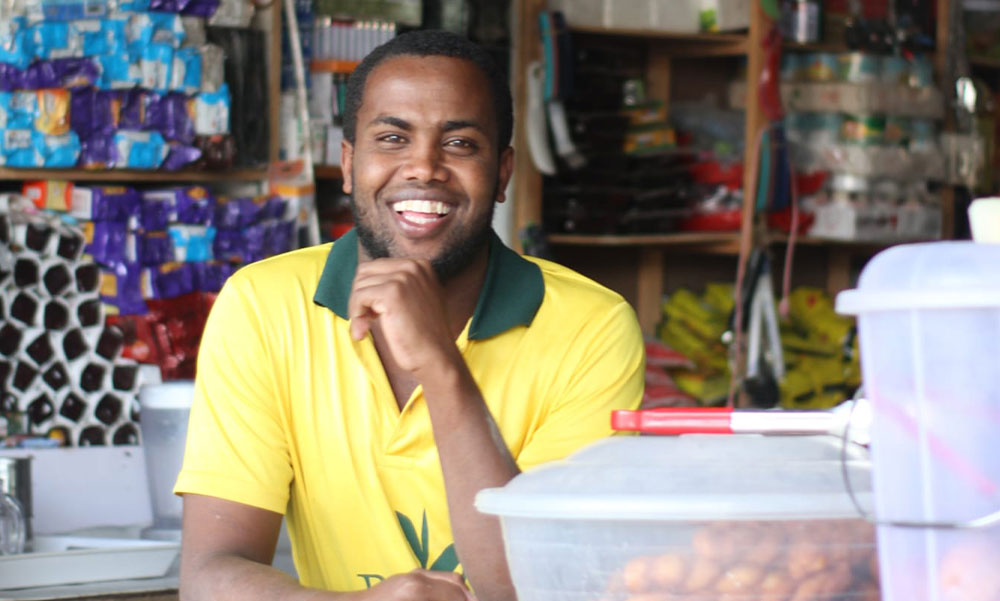
On one of my recent days off, three of us took a taxi to downtown Hargeisa and enjoyed a smoothie and cake at one of the hotels. Then we wandered along the street market where we found lots of small stalls selling a variety of clothes, food, and hardware. On what’s called the “no 1 street” there were a few modern western type shops, predominantly focused on telecommunications. Hargeisa is a very spread-out city and there is a lot of poverty but I have found only friendly people that are eager to talk to three foreign women and sell their wares to us. They were very pleasant in their sales approach, not as aggressive as in other open-air markets I have visited. There is no main water system, and water tanker trucks cannot get down the backstreets, so a fleet of small donkeys pull around barrels of water on little carts.

Related Reading
-
March 1, 2024
My Hands-On Conservation Experience with CCF -
September 27, 2022
A Biologist and Photographer’s Dream

